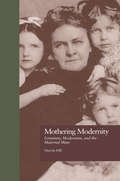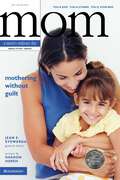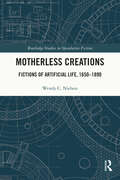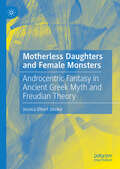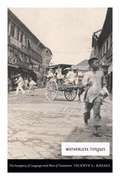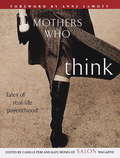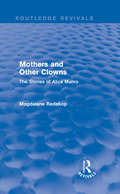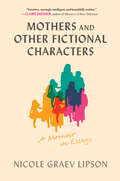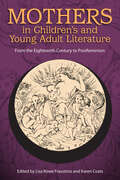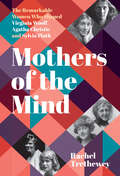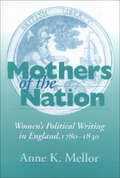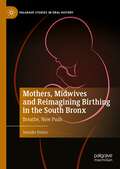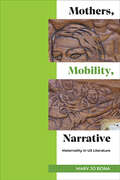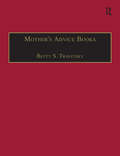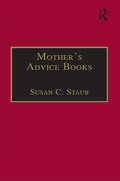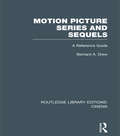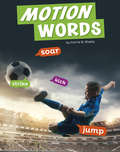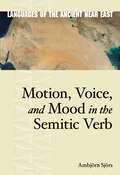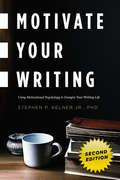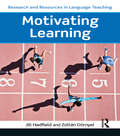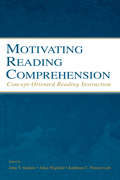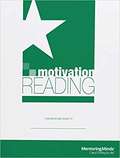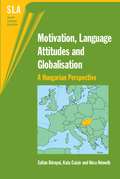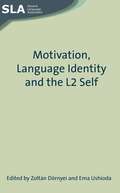- Table View
- List View
Mothering Modernity: Feminism, Modernism, and the Maternal Muse (Origins of Modernism)
by Marylu HillFirst published in 1999. Routledge is an imprint of Taylor & Francis, an informa company.
Mothering Without Guilt: You and God, You and Others, You and Your Kids (A Mom's Ordinary Day Bible Study Series)
by Sharon A. HershA Bible study series addressing the unique needs of moms.These 8 Bible studies help women discover God’s wisdom on how to be the best mothers, women, and disciples they can be. Each study contains 6 sessions divided into 5 flexible portions: For You Alone, For You and God’s Word, For You and Others, For You and God, and For You and Your Kids. The last section helps moms share each week’s nugget of truth with their children.• Mothering without Guilt identifies and debunks the “perfect mom” stereotypes and encourages moms to be real—not perfect—and forgiven—not guilty.
Motherless Creations: Fictions of Artificial Life, 1650-1890 (Routledge Studies in Speculative Fiction)
by Wendy C. NielsenThis book explains the elimination of maternal characters in American, British, French, and German literature before 1890 by examining motherless creations: Pygmalion’s statue, Frankenstein’s creature, homunculi, automata, androids, golems, and steam men. These beings typify what is now called artificial life, living systems made through manufactured means. Fantasies about creating life ex-utero were built upon misconceptions about how life began, sustaining pseudoscientific beliefs about the birthing body. Physicians, inventors, and authors of literature imagined generating life without women to control the process of reproduction and generate perfect progeny. Thus, some speculative fiction before 1890 belongs to the literary genealogy of transhumanism, the belief that technology will someday transform some humans into superior, immortal beings. Female motherless creations tend to operate as sexual companions. Male ones often emerge as subaltern figures analogous to enslaved beings, illustrating that reproductive rights inform readers’ sense of who counts as human in fictions of artificial life.
Motherless Daughters and Female Monsters: Androcentric Fantasy in Ancient Greek Myth and Freudian Theory
by Jessica Elbert DeckerThis book is a feminist analysis of Greek myth and tragedy that reimagines the structures of Freudian theory. The objective of this analysis is political—by revealing the structures that undergird patriarchal oppression, feminist thinkers can work to transform these symbolic constellations through the work of sabotage, parody, and imagination. Jessica Elbert Decker attempts here to read Freudian theory through a wider lens of Ancient Greek culture, since our contemporary philosophical and social culture has inherited many of its symbolic structures (e.g., patriarchy, binary thinking). The major argument of the book is that our Western philosophical, social, and symbolic systems are, as they were in the Ancient Greek world, suffused with a set of values that reflect one version of masculinity and androcentrism, and that those values are destructive to human beings as well as the non-human world, including other beings.
Motherless Tongues: The Insurgency of Language amid Wars of Translation
by Vicente L. RafaelIn Motherless Tongues, Vicente L. Rafael examines the vexed relationship between language and history gleaned from the workings of translation in the Philippines, the United States, and beyond. Moving across a range of colonial and postcolonial settings, he demonstrates translation's agency in the making and understanding of events. These include nationalist efforts to vernacularize politics, U.S. projects to weaponize languages in wartime, and autobiographical attempts by area studies scholars to translate the otherness of their lives amid the Cold War. In all cases, translation is at war with itself, generating divergent effects. It deploys as well as distorts American English in counterinsurgency and colonial education, for example, just as it re-articulates European notions of sovereignty among Filipino revolutionaries in the nineteenth century and spurs the circulation of text messages in a civilian-driven coup in the twenty-first. Along the way, Rafael delineates the untranslatable that inheres in every act of translation, asking about the politics and ethics of uneven linguistic and semiotic exchanges. Mapping those moments where translation and historical imagination give rise to one another, Motherless Tongues shows how translation, in unleashing the insurgency of language, simultaneously sustains and subverts regimes of knowledge and relations of power.
Mothers Who Think
by Kate Moses Camille PeriFrom the editors of the cutting-edge online magazine Salon come provocative essays that take an unflinching look at the gritty truths and unreserved pleasures of contemporary motherhood. Mothers Who Think: Tales of Real-Life Parenthood, which grew out of Salon's popular daily department of the same name, comprises nearly forty essays by writers grappling with the new and compelling ideas that motherhood has dangled before them. Elevating the discussion of motherhood above the level of tantrum control and potty training, this collection covers an unparalleled range of topics, from the impossibility of loving your children equally to raising a son without a father, from worrying that your privileged black child is becoming too "white" to the free-floating anger most mothers feel but wouldn't dare admit--except to other mothers. The intelligent, candid essays in Mothers Who Think are a testament to the notion that motherhood gives women more to think about, not less. Coeditors Camille Peri and Kate Moses have assembled the best writing from the website's first two years, including works by "Mothers Who Think" regulars Anne Lamott, Chitra Divakaruni, Susie Bright, and Stephanie Coontz; eloquent new essays by Jayne Anne Phillips, Sallie Tisdale, Susan Straight, Jane Lazarre, Nora Okja Keller, Beth Kephart, Ariel Gore, and Alex Witchel; and more than a dozen un-forgettable new voices. Irreverent, wistful, hilarious, fierce, tender, these essays offer an unsparing look at the myths and realities, serious and silly sides, and thankless and supremely satisfying aspects of being a mother. WRITERS Erin Aubry, Karen Grigsby Bates, Susie Bright, Stephanie Coontz, Chitra Divakaruni, Celeste Fremon, Mona Gable, Leslie Goodman-Malamuth, Ariel Gore, Arlene Green, Nora Okja Keller, Beth Kephart, Anne Lamott, Jane Lazarre, Lori Leibovich, Ceil Malek, Joyce Millman, Kate Moses, Beth Myler, Debra S. Ollivier, Camille Peri, Jayne Anne Phillips, Elizabeth Rapoport, Jennifer Reese, Rahna Reiko Rizzuto, Cynthia Romanov, Catherine A. Salton, Sandi Kahn Shelton, Rose Stoll, Susan Straight, Sallie Tisdale, Kim Van Meter, Cathy Wilkinson, Alex Witchel ON MOTHERHOOD Adoption, Babysitters, Baths, Birth, Blenders, Bodies, Boys Without Men, Brothers, Car Pools, Cold Coffee, College, Cupcakes, Custody, Daughters, Death, Diapers, Divorce, Dramas, Dreams, Escape, Expectations, Experience, Fantasies, Fathers, Food, Grandmothers, Growing Up, Gumbo, Home, Hunger, Kiddie Pools, Language, Lists, Love, Memories, Mothers, Nursing, Pets, Pregnancy, Pride, Princesses, Rage, School, Separation, Sex, Single Mothers, Sippy Cups, Sisters, Sleep Deprivation, Smells, Soccer Moms, Sons, Stepmothers, Tantrums, Teenagers, Time, Vibrators, Waterbeds, Working Mothers, Writing Mothers
Mothers and Other Clowns: The Stories of Alice Munro (Routledge Revivals)
by Magdalene RedekopFirst published in 1992, this is the first study of the work of Alice Munro to focus on her obsession with mothering, and to relate it to the hallucinatory quality of her magic realism. A bizarre collection of clowning mothers parade across the pages of Munro’s fiction, playing practical jokes, performing stunts, and dressing in disguises that recycle vintage literary images. Magdalene Redekop studies this with the aim of gaining increased understanding of Munro’s evolving comic vision.
Mothers and Other Fictional Characters: A Memoir in Essays
by Nicole Graev LipsonUSA Today Bestseller “Sensitive, searingly intelligent, and beautifully written.” —Claire Dederer, author of Monsters: A Fan’s Dilemma “This is—for real—a masterwork, one I will return to over and over." —Joanna Rakoff, author of My Salinger Year In this intimate and riveting memoir, Best American Essayist Nicole Graev Lipson breaks through the ready-made stories of womanhood, rescuing truth from the fiction that infiltrates our lives.What does it take to escape the plotlines mapped onto us? Searching for clues in the work of her literary foremothers, Lipson untangles what it means to be a girl, a woman, a lover, a partner, a daughter, and a mother in a world all too ready to reduce us to stock characters. Whether she’s testing the fragile borders of fidelity, embracing the taboo power of female friendship, escaping her family for the solitude of the mountains, grappling with what to do with her frozen embryos, or letting go of the children she imagined for the ones she’s raising, Lipson pushes beyond the easy, surface stories we tell about ourselves to brave less certain territory. As Lipson journeys through this thorny terrain, literature becomes her lodestar. Kate Chopin’s erotic story “The Storm” helps her reckon with the longings stirring below the surface of her marriage. Watching her son absorb the stifling codes of manhood, she finds unlikely parenting inspiration in Philip Roth’s most cartoonish overbearing mother. Summoning Gwendolyn Brooks, she asks, Can destroying one’s frozen embryos be understood as a maternal act? And accompanied by Shakespeare’s gender-bending heroine Rosalind, she seizes on the truest meaning of loving her oldest child. Risky and revealing, nourishing and affirming, rigorous and sexy, Mothers and Other Fictional Characters is a shimmering love letter to our forgotten selves—and the ones we’re still becoming.
Mothers in Children's and Young Adult Literature: From the Eighteenth Century to Postfeminism (Children's Literature Association Series)
by Lisa Rowe Fraustino and Karen CoatsWinner of the Children’s Literature Association’s 2018 Edited Book AwardContributions by Robin Calland, Lauren Causey, Karen Coats, Sara K. Day, Lisa Rowe Fraustino, Dorina K. Lazo Gilmore, Anna Katrina Gutierrez, Adrienne Kertzer, Kouen Kim, Alexandra Kotanko, Jennifer Mitchell, Mary Jeanette Moran, Julie Pfeiffer, and Donelle RuweLiving or dead, present or absent, sadly dysfunctional or merrily adequate, the figure of the mother bears enormous freight across a child's emotional and intellectual life. Given the vital role literary mothers play in books for young readers, it is remarkable how little scholarly attention has been paid to the representation of mothers outside of fairy tales and beyond studies of gender stereotypes. This collection of thirteen essays begins to fill a critical gap by bringing together a range of theoretical perspectives by a rich mix of senior scholars and new voices.Following an introduction in which the coeditors describe key trends in interdisciplinary scholarship, the book's first section focuses on the pedagogical roots of maternal influence in early children's literature. The next section explores the shifting cultural perspectives and subjectivities of the twentieth century. The third section examines the interplay of fantasy, reality, and the ethical dimensions of literary mothers. The collection ends with readings of postfeminist motherhood, from contemporary realism to dystopian fantasy.The range of critical approaches in this volume will provide multiple inroads for scholars to investigate richer readings of mothers in children's and young adult literature.
Mothers of the Mind: The Remarkable Women Who Shaped Virginia Woolf, Agatha Christie and Sylvia Plath
by Rachel Trethewey‘The relationship between my grandmother and her mother was very important and indeed crucial to her childhood and the very early days of her writing … So, to have more insight into this particular aspect of my grandmother’s early life is very valuable.’ Mathew Prichard, Agatha Christie’s grandsonVirginia Woolf, Agatha Christie and Sylvia Plath are three of our most famous authors. For the first time this book tells in full the story of the remarkable mothers who shaped them.Julia Stephen, Clara Miller and Aurelia Plath were fascinating women in their own rights, and their relationships with their daughters were exceptional; they profoundly influenced the writers’ lives, literature and attitude to feminism. Too often in the past Virginia, Agatha and Sylvia have been defined by their lovers – Mothers of the Mind redresses the balance by charting the complex, often contradictory, bond between mother and daughter. Drawing on previously unpublished sources from archives around the world and accounts from family and friends of the women, this book offers a new perspective on these iconic authors.
Mothers of the Nation: Women's Political Writing in England, 1780–1830
by Anne K. MellorA survey of British women’s writings of the late eighteenth and early nineteenth centuries, and the revolutionary New Woman they promoted.British women writers were enormously influential in the creation of public opinion and political ideology during the years from 1780 to 1830. Anne Mellor demonstrates the many ways in which they attempted to shape British public policy and cultural behavior in the areas of religious and governmental reform, education, philanthropy, and patterns of consumption. She argues that the theoretical paradigm of the “doctrine of the separate spheres” may no longer be valid. According to this view, British society was divided into distinctly differentiated and gendered spheres of public versus private activities in the eighteenth and nineteenth centuries,Surveying all the genres of literature?drama, poetry, fiction, non-fiction prose, and literary criticism?Mellor shows how women writers promoted a new concept of the ideal woman as rationally educated, sexually self-disciplined, and above all, virtuous. This New Woman, these writers said, was better suited to govern the nation than were its current fiscally irresponsible, lecherous, and corruptible male rulers.Beginning with Hannah More, Mellor argues that women writers too often dismissed as conservative or retrogressive instead promoted a revolution in cultural mores or manners. She discusses writers as diverse as Elizabeth Inchbald, Hannah Cowley, and Joanna Baillie; as Charlotte Smith, Anna Barbauld, and Lucy Aikin; as Mary Wollstonecraft, Charlotte Reeve, and Anna Seward; and concludes with extended analyses of Charlotte Smith’s Desmond and Jane Austen’s Persuasion. She thus documents women writers’ full participation in that very discursive public sphere which Habermas so famously restricted to men of property. Moreover, the new career of philanthropy defined by Hannah More provided a practical means by which women of all classes could actively construct a new British civil society, and thus become the mothers not only of individual households but of the nation as a whole.“Intellectual and social historians (and not just feminists) have long believed that the late 18th and early 19th centuries in Britain saw an increasing separation of the male (public) and female (domestic) realms, with the result that the public sphere theorized by Jurgen Habermas and others to have emerged in the Enlightenment almost entirely excluded women. With energy, wit, and admirable command of her sources, Mellor . . . author of distinguished books on Romanticism . . . demonstrates that just the opposite was true: in the years around 1800, women became the primary producers and consumers of writing in Britain and vitally participated in the discursive public sphere—many arguing in their different ways for what Hannah More (the most popular author of the period) called a moral revolution in the national manners and principles. . . . [A] splendid survey of women novelists, poets, critics, playwrights, and social theorists . . . this bracing and important work of revision deserves a place in serious academic libraries serving both undergraduates and advanced scholars.” —D. L. Patey, Choice
Mothers, Midwives and Reimagining Birthing in the South Bronx: Breathe, Now Push (Palgrave Studies in Oral History)
by Jennifer DohrnWomen came through the doors at a community-based birthing center in the South Bronx seeking prenatal care. They had heard about the center from a neighbor, a parents' group at their children’s school, or the local mosque or church. What they found when they arrived was a brightly-colored waiting area that resembled a living room, children immersed in games in a corner, and staff that reflected the mosaic of cultures living in the surrounding apartments. They also met midwives who asked about their lives, their children, their families and traditions. If pregnancies developed complications, back-up obstetricians were there to give higher levels of care, with the women returning to the midwifery center afterwards. The results were healthy mothers and healthy babies. For over twenty years the center became a haven for women’s health care and a national exemplar. It is a tragic and unjust paradox that the United States, the highest income country in the world and the country with the largest budget for perinatal care, has rising rates of maternal mortality that disproportionately affect women of color. Yet an inner-city maternity center with midwifery care found solutions to the challenge of making birth safe for low-income populations, especially women of color. This oral history presents the stories of twelve women who participated in this care. As they tell it, the experience changed their lives and their understanding of what safe, quality maternal care can achieve. Jennifer Dohrn examines the systems that perpetuate disparities in care, from global to local, and describes essential components needed for change, using oral histories as evidence for the way forward towards maternal health as a human right.
Mothers, Mobility, Narrative: Maternality in US Literature (SUNY series in Multiethnic Literatures)
by Mary Jo BonaShows how US literary representations of mothering across racial, ethnic, and LGBTQ communities challenge ideological prescriptions about motherhood and maternal love.Mothers, Mobility, Narrative pairs women-identified writers whose work illuminates a range of maternal practices in the face of egregious structural inequalities and obstacles. By using the critical lens of maternal feminism, alongside recent theories of time, space, and memory, Mary Jo Bona reengages the field of motherhood studies to explore linkages between motherhood and movement. Across genres, Harriet Jacobs, Willa Cather, Toni Morrison, Audre Lorde, Kym Ragusa, Carole Maso, Cristina García, and Rebecca Makkai develop maternal figures who, in battling against institutional oppressions in eras of slavocracy, colonialism, dictatorship, and pandemic, expose the fundamentally intersectional nature of social categorization and disrupt traditional discourses of the maternal. Mothers, Mobility, Narrative rethinks maternality across a century and a half of literary expression in the United States, compelling readers to embrace more capacious understandings of maternal subjectivity, care, and kinship.
Mother’s Advice Books: Printed Writings 1500–1640: Series I, Part Two, Volume 8 (The Early Modern Englishwoman: A Facsimile Library of Essential Works & Printed Writings, 1500-1640: Series I, Part Two #Vol. 8)
by Betty S. Travitsky and Patrick CullenEarly modern works of advice can be typified by a number of texts by Erasmus falling into a variety of categories: advice on family conduct; manners; study plans and piety. A close relation to these works of advice was the parental advice book, usually written by a father to his son. It was not until the early 17th century that the mother's advice book evolved and even then these were often legitimated by the female authors claiming that sickness, or even impending death, made relaying their motherly advice by a means other than print impossible. The contents of the present volume, ordered chronologically by the date of the first edition of each advice book, are limited to works attributed to named mothers, even though information about these historical women is not always abundant. Miscellanea was the attempt of Elizabeth Grymeston to distill advice to her only surviving. It was first published in 1604. The text reproduced here is the 1608 edition which was the first to include the additional substantive Prayers. Even though listings indicate there were 19 editions of The Mother’s Blessing before 1640 very little is known of Dorothy Leigh. The first edition (1616), reproduced here, describes her as a gentle-woman, not long deceased and her dedicatory epistle to her three sons identifies her as a widow. Elizabeth Clinton wrote her advice book when she had become countess-dowager. It was dedicated to her daughter-in-law and addresses an area where she had apparently been deficient - the imperative directed at early modern women by domestic conduct books that mothers should nurse their own children. The edition reproduced here is the British Library copy. Elizabeth Brook Joceline composed her Legacy whilst awaiting the birth of her first child, having become convinced that she would die in childbirth. She died in 1622, nine days after the birth of a daughter. Possibly the most poignant of the mother's advice books, this was intended to stand in for her instructi
Mother’s Advice Books: Printed Writings 1641–1700: Series II, Part One, Volume 3 (The Early Modern Englishwoman: A Facsimile Library of Essential Works & Printed Writings, 1641-1700: Series II, Part One #Vol. 3, Pt. 1)
by Susan C. StaubA form of courtesy literature, Mother's Advice Books were texts written by mothers to instruct their children in religious, educational, and occasionally wordly matters. The three texts included in this volume, Elizabeth Richardson's A Ladies Legacie to her Davghters, Susanna Bell's The Legacy of a Dying Mother To Her Mourning Children, and the unattributed The Mothers Blessing, offer interesting alternatives to the many published male views of the family from the period. Indeed, this volume features an appendix with two much shorter portions of predominantly male-authored texts: Mary Pennyman's letter to her children, published as part of John Pennyman's Instruction to his Children, and Elizabeth Walker's 'For my Dear Children, Mrs.Margaret Walker and Elizabeth Walker', included in Anthony Walker's The Holy Life of Mrs. Elizabeth Walker. The fact that these women were mothers gave them an authority to write that other women were not easily granted, and it is clear that many of these works were written with publication in mind. In addition to giving women public status as authors, these books also enabled them to enter political and religious debates under the guise of offering advice to their children. The Mother's Advice Book is, then, an intriguing genre that simultaneously violates and yet replicates early modern patriarchy.
Motion Picture Series and Sequels: A Reference Guide (Routledge Library Editions: Cinema)
by Bernard A. DrewIn 1989 alone, for example, there were some forty-five major motion pictures which were sequels or part of a series. The film series phenomenon crosses all genres and has been around since the silent film era. This reference guide, in alphabetical order, lists some 906 English Language motion pictures, from 1899 to 1990, when the book was initially published. A brief plot description is given for each series entry, followed by the individual film titles with corresponding years, directors and performers. Animated pictures, documentaries and concert films are not included but movies released direct to video are.
Motion Words (Word Play)
by Carrie B. SheelyDive and dunk! Slide and slither! Verbs and motion go hand in hand. Bring verbs to young learners, and watch their vocabularies grow! Words are carefully matched to engaging photos that will keep children captivated from beginning to end.
Motion, Voice, and Mood in the Semitic Verb (Languages of the Ancient Near East)
by Henning Ambjörn SjörsThis book explores the relationship between the so-called ventive morpheme in Akkadian (-am) and the related suffixes -n and -a in other Semitic languages, including Amarna Canaanite, Ugaritic, Hebrew, and Arabic. Using formal reconstructions of the various morphemes and a functional analysis of their different usages, Ambjörn Sjörs convincingly argues that these endings are cognate morphemes that were formally and functionally related to the ventive morpheme in Akkadian.Sjörs provides a systematic description of non-allative ventive verbs in Old Babylonian, the energic and volitive in Amarna Canaanite, the energic and lengthened prefix conjugation in Ugaritic, the lengthened imperfect consecutive in Biblical Hebrew, and the subjunctive and energic in Classical Arabic. Sjörs explains how these verb forms were used within the framework of grammaticalization theory and demonstrates how the suffixes are historically related.Clearly and persuasively argued, Motion, Voice, and Mood in the Semitic Verb sheds valuable light on the Akkadian ventive and its relationship to the other related morphemes. It will be welcomed by linguists specializing in Akkadian, Amarna Canaanite, Ugaritic, Hebrew, and Arabic.
Motivate Your Writing: Using Motivational Psychology to Energize Your Writing Life
by Stephen P. Kelner Jr.Energize and organize your writing life by tapping into your fundamental motivators.Note: This second edition has been substantially revised and updated, including 10% more content than the first edition.Aspiring and professional writers alike struggle to stay motivated; in the face of distractions, obligations, and procrastination, the desire to write often fails to become the act of writing. Motivated writers, notes the author, are those who have learned to identify their fundamental emotional drives and who have established a writing routine that satisfies those drives. Kelner draws on the research and insights of motivational psychology to show writers how to harness the energy of these fundamental motivators. With a degree in motivational psychology, Kelner applies not only his training in the field but also his own original research into the motivational patterns typical of writers. Depending on their motivational profile, different writers will respond best to different kinds of feedback and rewards and will function best in different kinds of environments. Kelner explains the basic drives of power, affiliation, and achievement; he shows how these drives are manifested in a wide variety of behaviors; and he provides self-assessment tools to construct your own motivational profile. In clear and accessible terms, and with numerous examples and anecdotes, Kelner shows writers how they can identify their own primary motivations and use that knowledge to arrange their work habits and energize their writing lives.
Motivating Learning (Research and Resources in Language Teaching)
by Zoltán Dörnyei Jill HadfieldMotivation is a vital element in learning, and the most commonly cited explanation for success or failure in language learning. Jill Hadfield and Zoltán Dörnyei present a new theory of motivation centred around the notion of the "˜Ideal Future Language Self", arguing that if students have a rich and inspiring vision of themselves as successful future language learners and users, they will be motivated to work hard to actualise the vision and become that learner. This book: - integrates the latest research in language teaching with innovative classroom practice - offers suggestions on how the various components of the theory could be structured into a teaching sequence - includes a variety of imaginative classroom activities designed to aid both student and teacher in creating and actualising the Ideal Self through visualisation, goal setting, task identification and planning, and a selection of appropriate learning strategies. - shows how teachers can undertake motivation-related research in their own classrooms. This is an ideal guide to and activity book for the theory and practice of motivation in language learning for students and teachers alike.
Motivating Reading Comprehension: Concept-Oriented Reading Instruction
by Allan WigfieldConcept Oriented Reading Instruction (CORI) is a unique, classroom-tested model of reading instruction that breaks new ground by explicitly showing how content knowledge, reading strategies, and motivational support all merge in successful reading instruction. A theoretical perspective (engagement in reading) frames the book and provides a backdrop for its linkage between hands-on science activities and reading comprehension. Currently funded by the Interagency Educational Research Initiative (IERI), this model has been extensively class tested and is receiving national attention that includes being featured on a PBS special on the teaching of reading.Key features of this outstanding new volume include:*Theoretical Focus--CORI's teaching framework revolves around the engagement perspective of reading: how engaged reading develops and the classroom contexts and motivational supports that promote it.*Content-Area Focus--Although science is the content area around which CORI has been developed, its basic framework is applicable to other content areas.*Focus on Strategy Instruction--CORI revolves around a specific set of reading strategies that the National Reading Panel (2000) found to be effective. In some current CORI classrooms collaborating teachers implement all aspects of CORI and in other classrooms teachers implement just the strategy instruction component. *Illustrative Vignettes and Cases--Throughout the book vignettes and mini-case studies convey a situated view of instructional practices for reading comprehension and engagement. A detailed case study of one teacher and of the reading progress of her students is featured in one chapter. This book is appropriate for graduate and advanced undergraduate students in education and psychology, for practicing teachers, and for researchers in reading comprehension and motivation.
Motivation Reading Level 3
by Michael L. LujanAddress the rigor, depth, and complexity seen in the Common Core Standards with Motivation Reading. It unpacks and clarifies the Common Core Standards while providing opportunities for formative assessments and performance tasks. It also provides high-interest selections and selected-response assessments aligned to the Common Core Standards. Motivation Reading is built for the Common Core.
Motivation Reading Level 4: TEKS- Based Alignment to STAAR
by Mentoring Minds Editorial StaffCritical Thinking for Life! Reading Test Prep
Motivation, Language Attitudes and Globalisation
by Zoltan Dornyei Kata CsizerThis volume presents the results of the largest ever language attitude/motivation survey in second language studies. The research team gathered data from over 13,000 Hungarian language learners on three successive occasions: in 1993, 1999 and 2004. The examined period covers a particularly prominent time in Hungary's history, the transition from a closed, Communist society to a western-style democracy that became a member of the European Union in 2004. Thus, the book provides an 'attitudinal/motivational flow-chart' describing how significant sociopolitical changes affect the language disposition of a nation.
Motivation, Language Identity and the L2 Self
by Zoltan Dornyei Ema UshiodaDue to its theoretical and educational significance within the language learning process, the study of L2 motivation has been an important area of second language acquisition research for several decades. Over the last few years L2 motivation research has taken an exciting new turn by focusing increasingly on the language learner's situated identity and various self-perceptions. As a result, the concept of L2 motivation is currently in the process of being radically reconceptualised and re-theorised in the context of contemporary notions of self and identity. With contributions by leading European, North American and Asian scholars, this volume brings together the first comprehensive anthology of key conceptual and empirical papers that mark this important paradigmatic shift.
